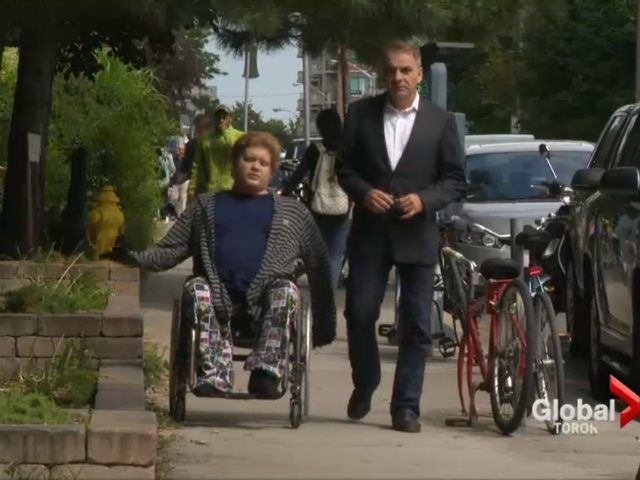Austin Lewis, a 21-year-old disabled man who requires a wheelchair, was recently denied access to a publicly-subsidized housing apartment due to him not being a Muslim. Lewis sought an apartment in the Ahmadiyya Abode of Peace, a building in Toronto administered by a Muslim organization.
The building offers means-tested housing benefits to eligible applicants. Since the beginning of this year, residency for new applicants has been restricted exclusively to “members of the Muslim Jama’at.” This policy of religious/ethnic discrimination was approved by Toronto’s city council. The city of Toronto provides a $1.7 million dollar subsidy to 94 units within the building, spread out over five years and having begun on January 1st of this year. Lewis was advised of this denial via a letter from the apartment’s management explicitly stating he was ineligible due to him not being a Muslim.
Lewis’s case remains pending, but the governmental bodies that handle such cases in Canada have a history of favoring Muslim plaintiffs against non-Muslim defendants.
In Canada, provincially-administered “Human Rights Commissions” handle cases like this, tasked with combating “systemic discrimination.” The Ontario Human Rights Commission claims to “build respect for human rights into all aspects of life in Ontario.” It also claims to examine “the roots of discrimination,” develop policies to prevent “different forms of discrimination,” and “raise awareness of human rights issues.” The Human Rights Tribunal of Ontario is a separate bureaucratic organ that renders judgments over allegations of prohibited discrimination brought before it by claimants. The HRTO self-identifies as being dedicated to advancing “social justice.” Both the OHRC and HRTO have come under fire for their practices.
In October of 2009, the HRTO ordered a Maxcine Telfer to pay $36,000 in damages to Seema Saadi, a former employee. Saadi is a Muslim woman who claimed that she had been illegally terminated on the grounds of her ancestry, ethnic origin, and creed. She also claimed to have been discriminated against based on her sex, alleging she felt pressured to wear skirts and heels instead of her hijab (an Islamic head/hair covering for women). The adjudicator of the tribunal, Faisal Bhaba, is a lawyer who had previously represented the National Council of Canadian Muslims and is an advocate of “legal pluralism.” The HRTO order was subsequently reversed in 2011 by Ontario’s Superior Court, which itself ordered Saadi to pay Telfer $10,000 to cover legal costs. Ontario taxpayers ended up paying the $10,000, as the Human Rights Legal Support Centre—a provincial bureaucracy that is a part of the governmental human rights industry—committed to covering the final judgment against Saadi.
In 2013, the OHRC ordered the owners of Le Papillon—an upscale Toronto restaurant—to pay $100,000 in damages to three Muslim employees it had fired. Abdul Malik, Mohammed Islam, and Arif Hossain were head chef, sous chef, and cook at the restaurant. The three men claimed that their “human rights” had been violated after being instructed to taste food they were preparing. They claimed they should not have been required to do so. Malik claimed that he ate pork schnitzel after being told to do so by an owner, saying he feared losing his job. Afterwards, he said he cried and could not sleep at night. The men also claimed that they were ordered to eat while fasting during Ramadan and were mocked and disrespected for speaking Bengali amongst themselves at work. They alleged that they were threatened with being replaced by “white” staff.
In another instance, where a complaint was levied against a Muslim barber by a homosexual woman, a confidential agreement was reached with both parties committing to non-disclosure. In 2002, Faith McGregor walked into a barbershop owned and operated by Muslim barbers. Omar Mahrouk, the shop’s co-owner, told her that his Islamic beliefs prohibit him from having physical contact with a woman outside of his family. McGregor filed a complaint with the HRTO, and subsequently reached a quiet settlement.
No word yet on whether the OHRC or HRTO will makes moves on Austin Lewis’s behalf pertaining to his claims of having been discriminated against on prohibited grounds by the Ahmadiyya Abode of Peace.
H/T Rebel Media

COMMENTS
Please let us know if you're having issues with commenting.